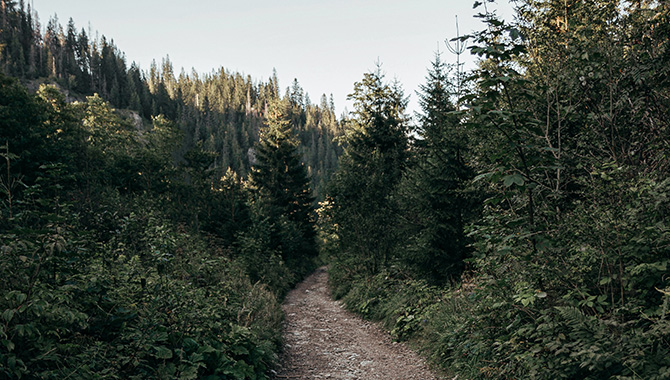For we know only in part, and we prophesy only in part, but when the complete comes, the partial will come to an end. ~ 1 Corinthians 13:9-10
Every morning when I walk, I lift my eyes to the hills and gaze at the La Plata Mountains to the east. The snow-covered basins and rock spirals saturate my heart like warm honey. The towering peaks call us out of the comfort of our homes and into the wild.
I remember 4th of July pilgrimages with our children, Andie and Ro, when they were young. Our neighbor Lois would join us with her young sons, and we would hike through the pine forests, hop on rocks to cross streams, and we would sit on fallen trees to catch our breath before we made our final push to the summit of Sharkstooth Pass.
One year, Jennifer and Lois’ son Daniel stood on a rock shelf in the middle of a high alpine meadow looking out over the Mancos Valley. The purple and white columbines were in full bloom, a never-ending quilt of hope. Daniel lifted his arms to the heavens and broke out in a full throttled song: “The hills are alive with the sound of music. With songs they have sung…”
I thought, “What 15-year-old kid sings a song from The Sound of Music while climbing a mountain?” Jennifer raised her hands and said, “Daniel. Stop! Stop! Stop!” “Why?” Daniel asked perplexed. “Because I want to sing with you,” she said.
So, the two of them did their best Julie Andrews and Christopher Plummer impersonations while singing, “The hills are alive with the sound of music; With songs they have sung for a thousand years…”
What songs do the mountains hold and sing? Songs of joy and sadness? Songs of hope and despair? Songs of forgiveness? Songs of love?
Over the past two weeks, many of my thoughts have centered on Ian, the 28-year-old vibrant young man who disappeared in the LaPlatas on June 24 after summiting Hesperus Mountain. Our 25-year-old son Ro has been up and down Hesperus more times than I can count. The search could just as easily be for him, so the rescue effort hits close to home for me and Jennifer.
A couple of friends called Ro to participate in the search and I tagged along as a parent. We walked for four hours through dense forest but found no signs. Innumerable volunteers have lovingly searched peaks, valleys, streams, and meadows for countless hours, but Ian has not been found.
One late afternoon, I parked my car above the search and rescue base camp and walked up the West Mancos Trail towards Hesperus Mountain. The trail was empty except for the birds singing their evening songs. I did not know what to pray, so I prayed for peace and strength for everyone involved.
On my way back to town, I stopped at the base camp to see if there were any new developments. I talked to Ed, our high school principal, who was at the command tent where search and rescue keep track of areas searched and any signs discovered.
It was last Saturday evening. “Have you found any new signs or evidence?” “No,” Ed said. “But we’re still looking.” “Is there anything we can do? Food? A meal? Supplies?” “No, I think we’re pretty good, but I’ll let you know.”
Then, I heard a small, light voice from a woman sitting in a camp chair to my left. “I am Ian’s mom,” she said. I could not hear her. “What?” “I’m Ian’s mother,” she said again. “I’m so sorry. I’m so sorry,” I said. I did not know what to say or do.
I looked ahead to the setting sun and then I looked at Ian’s mom again. I thought, “As parents, Jennifer and I, any parent, could be sitting in her chair.” My heart broke for her, her husband, and her family. “May I give you a hug?” I asked.
She looked at me with such sad eyes, slowly stood up, and wrapped her arms around me as I wrapped my arms around her. We held each other up. As we let each other go, Ian’s mom said, “We just don’t know.”
We do not know.
Father Richard Rohr writes that the anonymous author of The Cloud of Unknowing is always saying “we’ve got to balance our knowing with a willingness not to know.”
We won’t always know why things happen. We don’t know how life will unfold. We might have more questions than answers. Rohr writes, “We have to enter the cloud of forgetting—to forget all our certitudes, all our labels, all our explanations.” We can live in humility because “we don’t know.” We can live with hope, not that everything will turn out the way we want; but we can live with hope that divine love prevails through our troubles and our grief. Hope that grace will heal our souls over time.
We don’t know what happened to Ian. We may never know. But we can stand in The Cloud of Unknowing with grace and love with his parents, family, and friends. And may we trust that the hills are alive with the sound of music and all of us will “sing once more.” Amen.
Blessings and peace,
Craig

